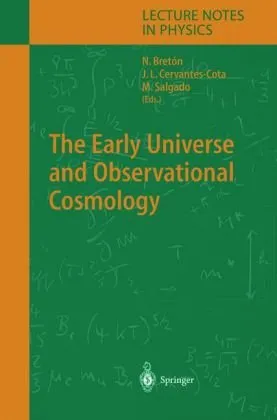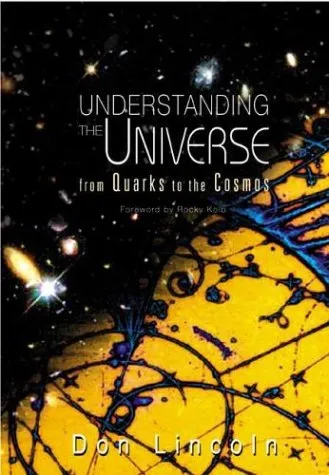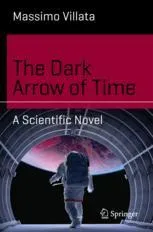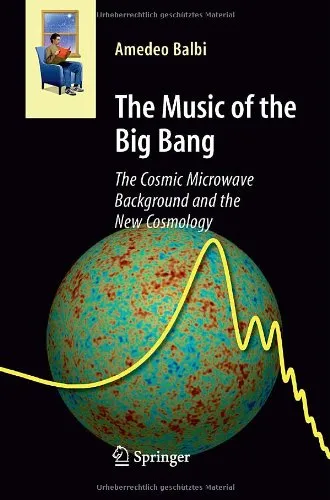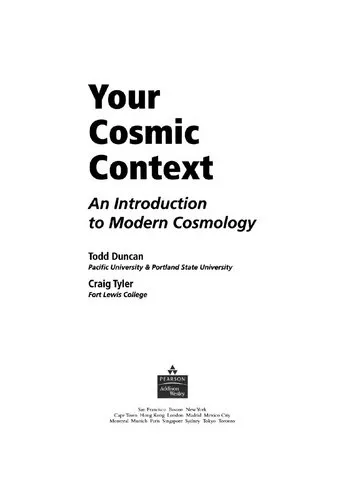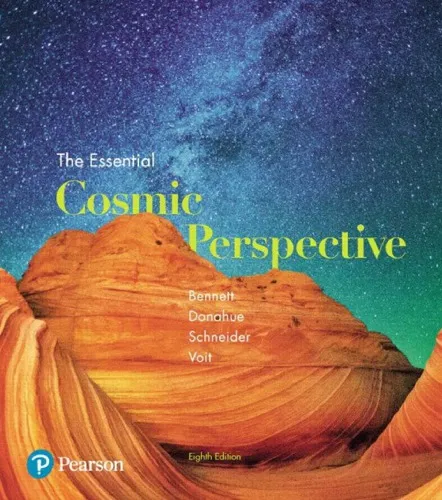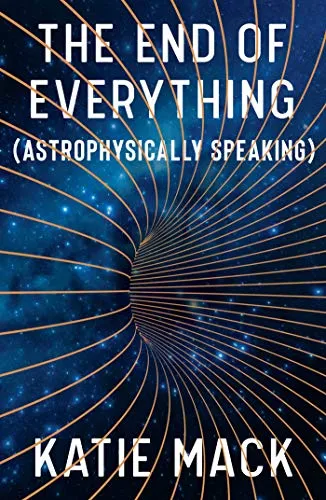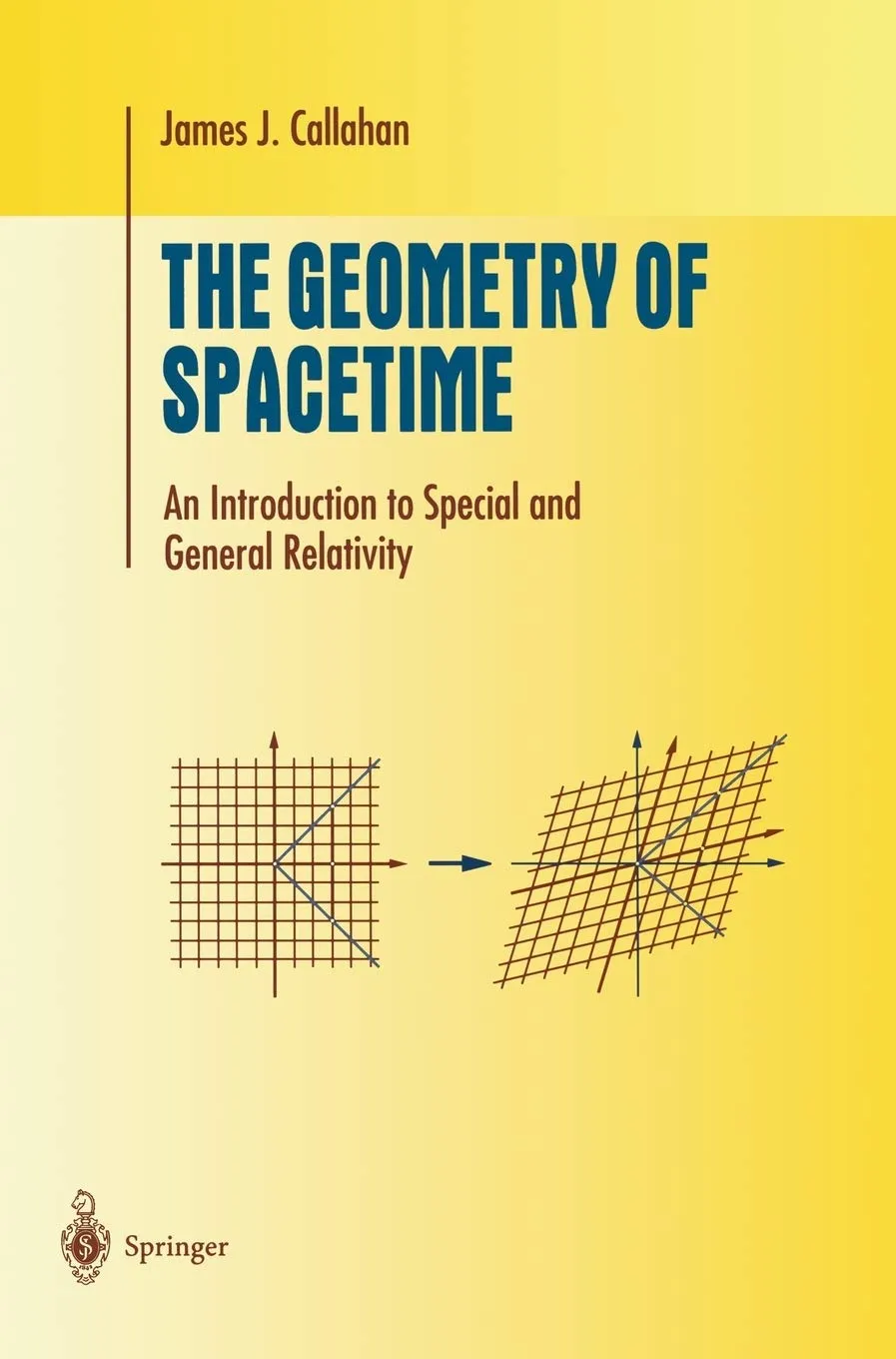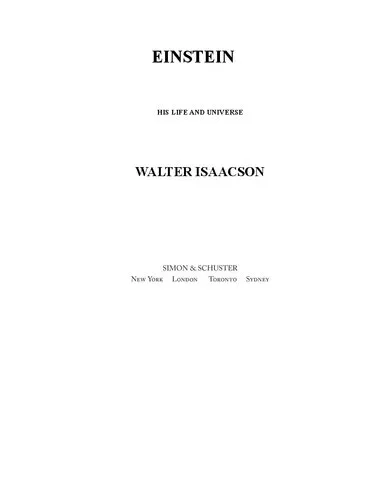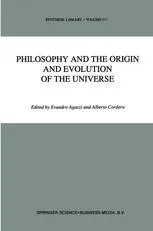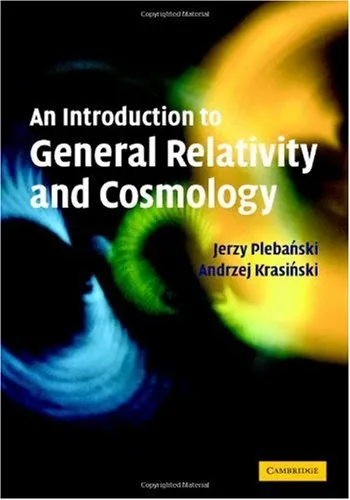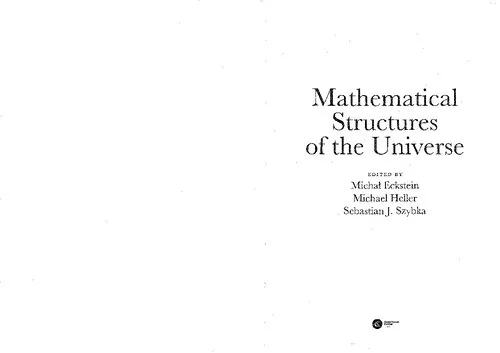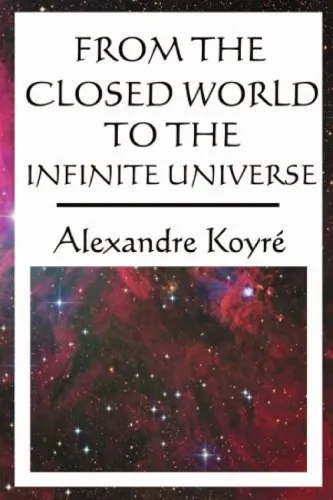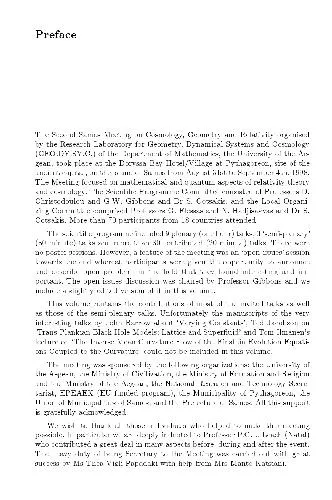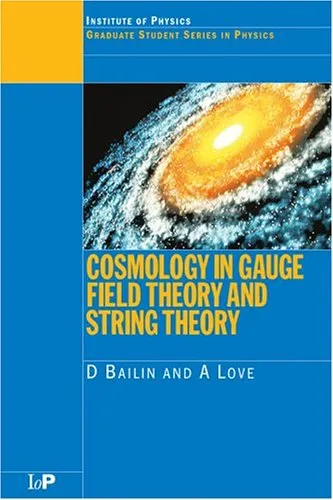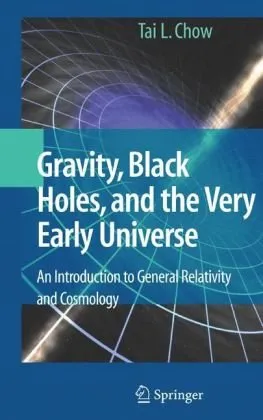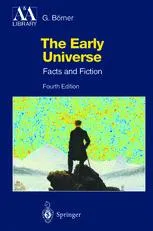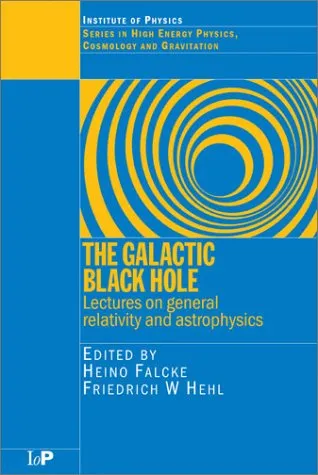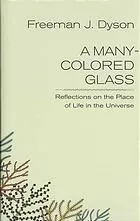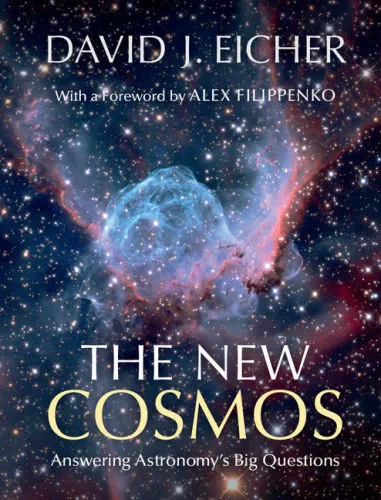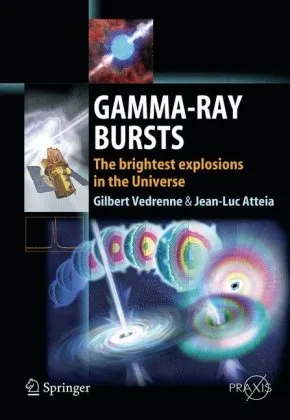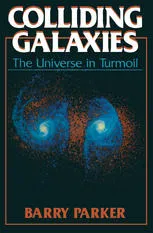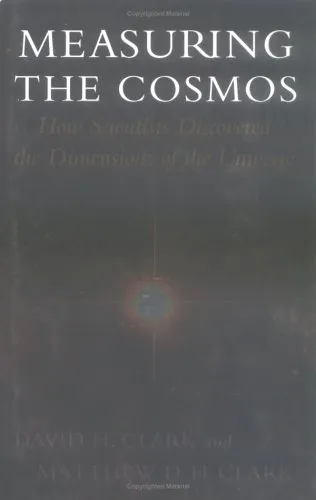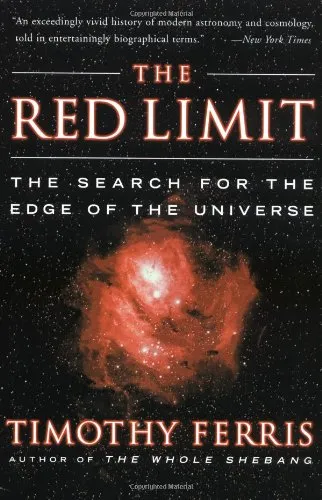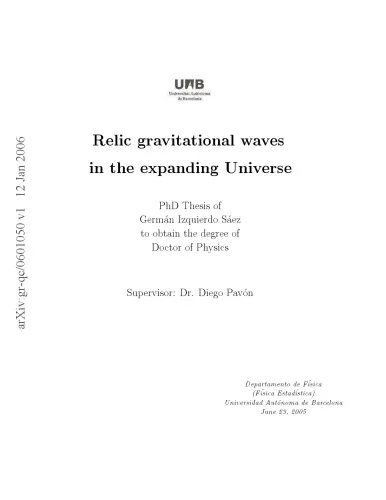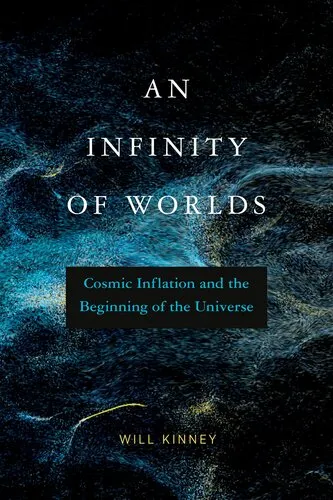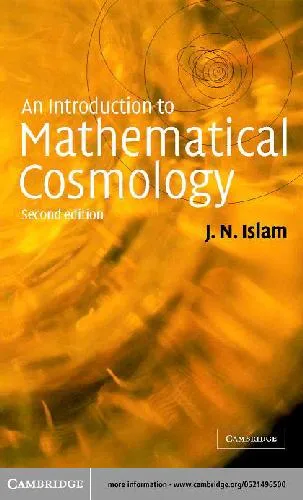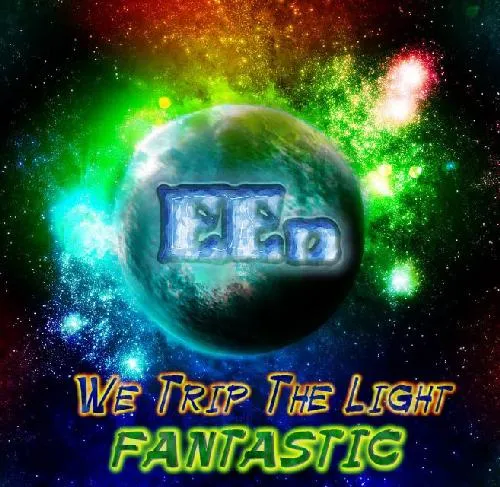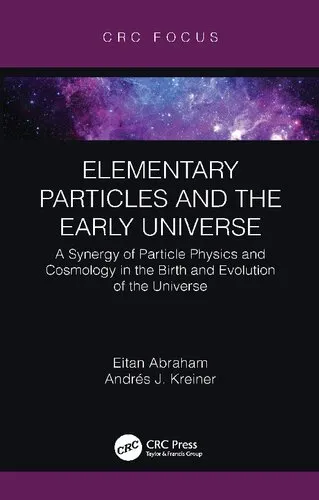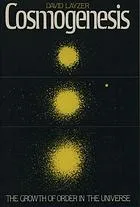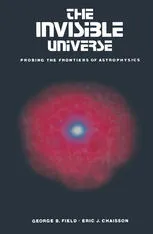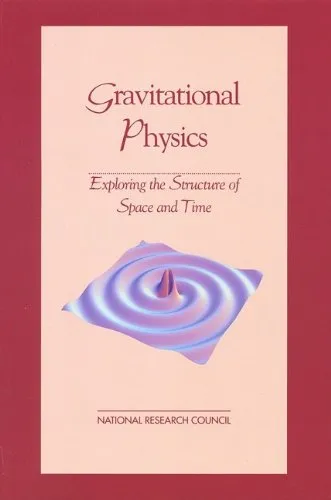The early universe and observational cosmology
4.5
بر اساس نظر کاربران

شما میتونید سوالاتتون در باره کتاب رو از هوش مصنوعیش بعد از ورود بپرسید
هر دانلود یا پرسش از هوش مصنوعی 2 امتیاز لازم دارد، برای بدست آوردن امتیاز رایگان، به صفحه ی راهنمای امتیازات سر بزنید و یک سری کار ارزشمند انجام بدینکتاب های مرتبط:
مقدمهای جامع بر کتاب "The Early Universe and Observational Cosmology"
کتاب The Early Universe and Observational Cosmology یکی از آثار ارزشمند در حوزه کیهانشناسی و فیزیک نظری است که به بررسی نحوه شکلگیری اولیه کائنات و ارتباط آن با دادههای Observational پرداخته است. این اثر که به همت جمعی از نویسندگان برجسته همچون Nora Bretón، Jorge L. Cervantes–Cota، و Marcelo Salgado تالیف شده است، به دانشجویان، محققان و تمامی افراد علاقهمند به کیهانشناسی، فرصت یادگیری عمیقی از مفاهیم علمی و تحقیقی در زمینه Universe را میدهد.
خلاصهای از محتوای کتاب
در کتاب The Early Universe and Observational Cosmology به بررسی موضوعاتی همچون ساختارهای بزرگمقیاس Universe، مفاهیم پیچیده برگرفته از فیزیک نظری و دادههای حاصل از تکنولوژیهای پیشرفته مرتبط با cosmology پرداخته شده است. این کتاب بر محور موضوعاتی از جمله:
- نظریه Big Bang و تکامل آن.
- ساختمان و تحول اولیه Universe با استفاده از Observational data.
- کاربردهای فیزیک کوانتومی در توضیح پدیدههای cosmological.
- چالشهای فعلی و آینده در نظریههای کیهانشناسی.
این اثر نه تنها به تبیین علمی موضوعات پیچیده میپردازد، بلکه با رویکرد آموزشی خود تلاش دارد تا درک خواننده را نسبت به مفاهیم اساسی و پیشرفته کیهانشناسی افزایش دهد.
نکات کلیدی کتاب
از دل فصلهای مختلف کتاب، میتوان چندین نکته کلیدی را استخراج کرد که درک کلی از ساختار Universe و نحوه استفاده از دادههای Observational را روشنتر میکند:
- پرداختن به ریشههای نظری بیگ بنگ و نظریههای مرتبط با آن.
- ارتباط میان دادههای استخراجشده از مشاهدات و پیشبینیهای نظری.
- نقش فناوریهای نوین در توسعه مطالعات کیهانشناسی.
- بحث در مورد ماده تاریک (Dark Matter) و انرژی تاریک (Dark Energy).
جملات معروف از کتاب
برخی جملات برجسته از این کتاب که بارها توسط محققان مورد استناد قرار گرفته است:
"Understanding the early universe is the key to unlocking the secrets of its present and future evolution."
"Cosmology is not just about looking out to the stars — it’s about understanding our origins."
چرا این کتاب اهمیت دارد؟
کتاب The Early Universe and Observational Cosmology نهتنها اثری علمی است، بلکه مرجعی است برای درک بسیاری از پرسشهای بنیادی درباره ساختار اولیه کائنات. امروزه که ابزارهای مطالعه فضا و دادههای مشاهداتی بهسرعت در حال پیشرفت است، مطالعه چنین منابع تثبیتشدهای ضروری به نظر میرسد. این کتاب میتواند پایهای قوی برای هر کس که در مسیر مطالعه کیهانشناسی پیش میرود باشد، زیرا:
- ارتباط عمیقی بین مسائل نظری و عملی در کیهانشناسی برقرار میکند.
- برجستهترین محققان این حوزه، یافتههای جدید و نظریات روز را توضیح دادهاند.
- به چالشهای مدرن کیهانشناسی پرداخت شده و راههای بالقوه حل آنها بررسی شده است.
Introduction to "The Early Universe and Observational Cosmology"
"The Early Universe and Observational Cosmology" is a comprehensive exploration of one of the most fascinating and complex fields in astrophysics and cosmology. Edited by distinguished researchers Nora Bretón, Jorge Luis Cervantes-Cota, and Marcelo Salgado, this book intertwines theoretical models, empirical data, and observational techniques to provide a detailed and accessible framework for understanding the universe's genesis, evolution, and large-scale structure. This masterpiece invites readers—students, researchers, and enthusiasts alike—to grasp the intricate relationships between early cosmological events and contemporary observations.
Rooted in rigorous scientific analysis yet approachable for non-experts with foundational knowledge, the book delves into diverse topics such as inflationary theory, primordial perturbations, cosmic microwave background radiation, and the distribution of galaxies. By merging observational and theoretical findings, it bridges the gap between the abstract mathematical models of the universe's infancy and the observable phenomena we study today.
Detailed Summary of the Book
The book is structured to guide the reader through the multifaceted universe, starting from its earliest moments following the Big Bang to its evolution over billions of years. The first sections focus on the theoretical underpinnings of cosmology, including discussions on general relativity, quantum field theory, and the mechanisms driving cosmic inflation. These set the stage for a detailed examination of the initial conditions of the universe and the role of quantum fluctuations in shaping its observable structure.
Subsequent chapters cover observational aspects of cosmology, highlighting the critical role of advanced telescopes, satellite missions, and ground-based experiments. Particular attention is given to the cosmic microwave background radiation, the "fossil light" from the Big Bang, and its implications for validating early-universe models. Readers are also introduced to large-scale structures such as galaxy clusters and the mysterious phenomena of dark matter and dark energy.
As the book progresses, interdisciplinary connections between astronomy, particle physics, and cosmology are explored. An in-depth discussion of observational challenges, such as measurement errors and cosmic foreground contamination, underscores the complexity of interpreting data. The culmination of these efforts is a cohesive picture of the universe's evolution, shaped by both natural laws and human ingenuity.
Key Takeaways
- The early universe was dominated by quantum and relativistic processes that left subtle imprints observable today.
- Inflationary models provide a robust explanation for the homogeneity, isotropy, and flatness of the universe.
- Cosmic microwave background radiation serves as a cornerstone for validating early-universe theories.
- Our understanding of large-scale structures benefits from the synergy between theory and advanced observation techniques.
- Dark matter and dark energy continue to challenge scientists, hinting at undiscovered physical laws.
Famous Quotes from the Book
"The universe, in its earliest moments, was a symphony of quantum interactions—its melody imprinted in the cosmic microwave background."
"A single photon from the cosmic microwave background carries with it a history lesson written in the language of the early universe."
"Modern observational cosmology stands as a testament to human curiosity—a quest to decode the universe's most profound secrets."
Why This Book Matters
Understanding the origins and evolution of the universe is one of science's most enduring quests, and "The Early Universe and Observational Cosmology" plays a critical role in advancing this endeavor. By combining theoretical rigor with cutting-edge observational techniques, the book not only answers pivotal questions but also inspires new lines of inquiry. Whether you're a student aiming to pursue research in astrophysics or an expert seeking insights into recent advances, this book is a valuable resource.
It matters because it captures the essence of scientific discovery: the unity of observation and theory. In an era where new telescopic missions and experimental detections redefine our knowledge, the authors help lay the foundation for navigating these transformative developments. Ultimately, "The Early Universe and Observational Cosmology" stands out as an indispensable guide to understanding the cosmos and our place within it.
دانلود رایگان مستقیم
شما میتونید سوالاتتون در باره کتاب رو از هوش مصنوعیش بعد از ورود بپرسید
دسترسی به کتابها از طریق پلتفرمهای قانونی و کتابخانههای عمومی نه تنها از حقوق نویسندگان و ناشران حمایت میکند، بلکه به پایداری فرهنگ کتابخوانی نیز کمک میرساند. پیش از دانلود، لحظهای به بررسی این گزینهها فکر کنید.
این کتاب رو در پلتفرم های دیگه ببینید
WorldCat به شما کمک میکنه تا کتاب ها رو در کتابخانه های سراسر دنیا پیدا کنید
امتیازها، نظرات تخصصی و صحبت ها درباره کتاب را در Goodreads ببینید
کتابهای کمیاب یا دست دوم را در AbeBooks پیدا کنید و بخرید
1492
بازدید4.5
امتیاز0
نظر98%
رضایتنظرات:
4.5
بر اساس 0 نظر کاربران
Questions & Answers
Ask questions about this book or help others by answering
No questions yet. Be the first to ask!
